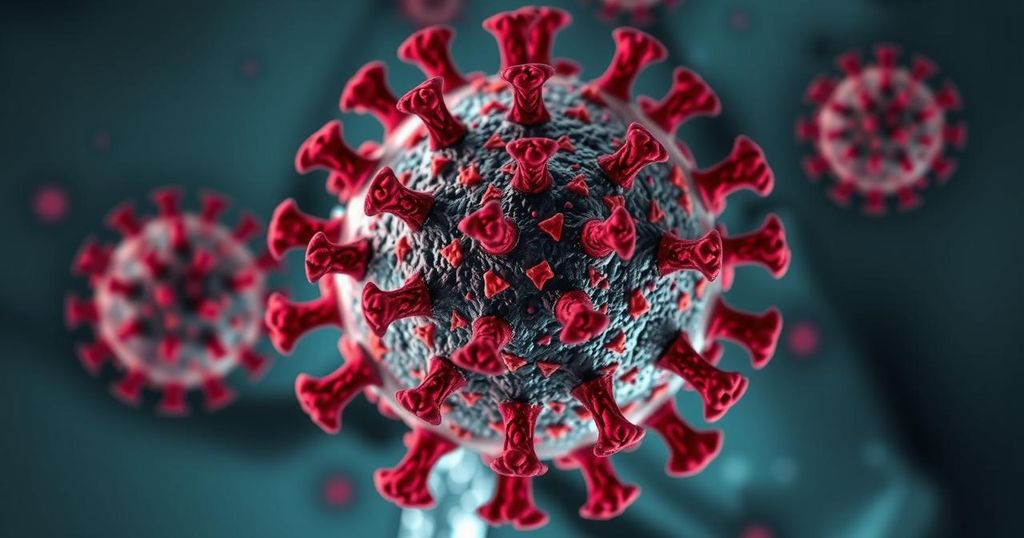Disease X, a new illness in the Democratic Republic of Congo, has affected nearly 400 individuals, resulting in 79 deaths. Symptoms include fever, cough, and breathing difficulties, predominantly affecting children under five. Prompt investigations by health authorities are underway to identify the disease’s cause and assess its transmission potential, while concerns grow over the local health infrastructure’s ability to respond effectively.
The emergence of Disease X in the Democratic Republic of Congo has raised concerns among health authorities globally. With nearly 400 reported cases and 79 fatalities, the outbreak began on October 24, 2023, with the first patient displaying symptoms that include fever, headache, cough, and breathing difficulties. This illness predominantly affects children under five, prompting immediate action from local and international health organizations. Public health interventions are being organized to ascertain the disease’s cause, with investigations focusing on both infectious and non-infectious pathogens.
Dr. Dieudonné Mwamba of the National Institute of Public Health in the DRC confirmed that rapid response teams have been deployed to the affected area in Kwango Province. This response was initially delayed by over five weeks, as local health workers began noticing the clustering of cases. Experts from various health organizations, including the Africa Centers for Disease Control and Prevention, are collaborating to conduct tests on samples from patients.
The possibility of Disease X being airborne is under consideration, yet this has yet to be substantiated. The uncertainty surrounding the nature of the disease has prompted urgent calls for more effective disease surveillance and a robust local health infrastructure. Acknowledging the high rates of malnutrition in the region, which stands at approximately 40%, health authorities emphasize the need for vigilance among the populace, advising against mass gatherings and contact with deceased individuals. The commitment of both international health authorities and DRC’s government to manage and contain the outbreak is viewed as a favorable development in curbing potential further escalation.
Disease X refers to an unexplained illness currently circulating in a remote area of the Democratic Republic of Congo, raising alarms due to its rapid spread and significant mortality rate. The outbreak has drawn the attention of international health authorities, who are monitoring the situation closely. The DRC’s health infrastructure is under scrutiny, considering how delays in reporting and managing such outbreaks can impact public health. The region’s existing health challenges, including high rates of malnutrition and past outbreaks, exacerbate the potential risks associated with this new disease.
In conclusion, the emergence of Disease X in the Democratic Republic of Congo presents a serious public health challenge that requires immediate attention. The collaboration of national and international health authorities is crucial for identifying the disease’s cause and preventing further outbreaks. There is an urgent need to strengthen health systems and improve surveillance to handle such crises effectively in the future. Maintaining public awareness and encouraging preventive measures are equally important as this situation unfolds.
Original Source: www.wbur.org






